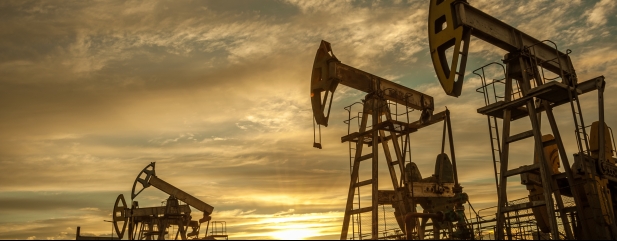Archived article
Please note that tax, investment, pension and ISA rules can change and the information and any views contained in this article may now be inaccurate.
Oil sees extreme volatility as Middle East tensions wax and wane

AJ Bell is an easy to use, award-winning platform Open an account
We've accounts to suit every investing need, and free guides and special offers to help you get the most from them.
You can get a few handy suggestions, or even get our experts to do the hard work for you – by picking one of our simple investment ideas.
All the resources you need to choose your shares, from market data to the latest investment news and analysis.
Funds offer an easier way to build your portfolio – we’ve got everything you need to choose the right one.
Starting to save for a pension, approaching retirement, or after an explainer on pension jargon? We can help.
Please note that tax, investment, pension and ISA rules can change and the information and any views contained in this article may now be inaccurate.

As we write, it seems the Middle East is in de-escalation mode, a shift which has seen oil prices give back a large portion of their recent gains and investors rediscover their risk appetite.
US strikes on Iranian nuclear facilities on 21 June raised the temperature before Iran came up with what appeared to be a fairly modest response in the form of a pre-warned strike on a US base in Qatar. This proved the precursor to the announcement of a ceasefire between Iran and Israel.
Whether the cessation in hostilities holds, with Israel accusing Iran of having violated the ceasefire a matter of hours after it had been announced, will determine what happens next.
A lot of the attention has focused on the strategically-important Strait of Hormuz, through which 20% of global oil and 20% of the world’s liquefied natural gas passes. Any threat to this waterway could quickly lead to a renewed surge in energy prices.
JPMorgan has signalled that in a worst-case scenario, where the production and supply of oil from the Persian Gulf is affected, crude could trade at $130 per barrel.
However, oil, which briefly traded above $80 per barrel before dropping below $70, has pretty weak fundamentals right now.
This reflects an uncertain global economic backdrop, and the implications that has for demand, and producers’ cartel OPEC+ boosting supply by increasing its output.
Therefore, without the threat posed by mounting Middle East tensions, it is not a surprise to see crude on the back foot. The slump on 23 June represented its largest one-day fall since 2022.
Gold prices also slipped back, and traditionally defensive sectors like tobacco and utilities struggled as investors moved out of traditional safe havens.
The heavy weighting for energy stocks, precious metals miners and other defensive areas meant the FTSE 100’s gains were more limited than seen elsewhere.
However, lower oil prices may provide central banks with greater scope to lower rates as one source of inflationary pressure eases.
Suggestions from Federal Reserve vice-chair Michelle Bowman that a cut could be on the cards at its next summit on 30 July, should inflation remain under control, back up this thinking.
These articles are provided by Shares magazine which is published by AJ Bell Media, a part of AJ Bell. Shares is not written by AJ Bell.
Shares is provided for your general information and use and is not a personal recommendation to invest. It is not intended to be relied upon by you in making or not making any investment decisions. The investments referred to in these articles will not be suitable for all investors. If in doubt please seek appropriate independent financial advice.
Investors acting on the information in these articles do so at their own risk and AJ Bell Media and its staff do not accept liability for losses suffered by investors as a result of their investment decisions.
The value of your investments can go down as well as up and you may get back less than you originally invested. We don't offer advice, so it's important you understand the risks, if you're unsure please consult a suitably qualified financial adviser. Tax treatment depends on your individual circumstances and rules may change. Past performance is not a guide to future performance and some investments need to be held for the long term.
 magazine
magazine